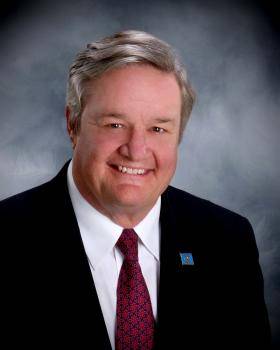Dalrymple's Budget Weighs on Oil Price Rebound
North Dakota Governor Jack Dalrymple proposed a two-year state budget on Wednesday that forecasts rebounding oil prices and a 23 percent jump in oil taxes, a tacit bet the state's energy boom will continue unabated.
Oil prices have dropped more than 30 percent since June amidst global oversupply and demand concerns. Last week OPEC opted not to cut its oil production, a step seen by many as designed to squeeze North Dakota and other oil-producing regions of the United States.
Despite OPEC's decision, Dalrymple expects oil extraction and gross production taxes of $8.32 billion for the 2015 through 2017 biennium, well above the projected $6.76 billion for the two-year term about to end.
Dalrymple expects daily oil production to rise 15 percent to about 1.4 million barrels by June 2017.
"This budget plan is ambitious, but we have once again taken great care to make sure we have developed a budget that is balanced and sustainable," Dalrymple said in a speech at the state capitol in Bismarck.
The budget, which must be approved by state legislators, is based on oil prices of $74 to $78 per barrel for the first year and $79 to $82 per barrel for the second.
The forecasts are well above the current price of oil , around $67 per barrel. Many North Dakota oil executives say their wells are still making money despite the price slide.
Dalrymple's $5 billion budget allocates $3.7 billion for oil-producing counties to build new roads and other public infrastructure projects. The state's western region is one of the fastest-growing parts of the United States.
The budget also allocates funding for the state's Public Service Commission to hire eight new rail and pipeline safety inspectors; the state's Department of Mineral Resources to hire 22 oil well engineers and field inspectors; and the state's Department of Health, which oversees water and air quality, to hire 19 new inspectors.
The state's General Fund, which funds much of the state government, receives only about 4 percent of all oil taxes.
The state's Legacy Fund, which receives about 31 percent of oil taxes, is expected to reach $6 billion by 2017 from about $3.5 billion today. The fund, designed as a type of "rainy day" reserve, cannot be touched until 2017.
(Reporting by Ernest Scheyder; Editing by Grant McCool, Reuters)










